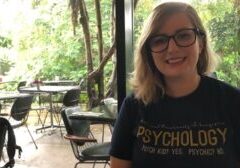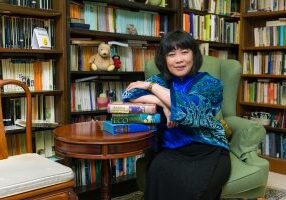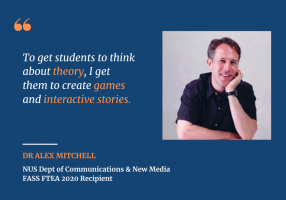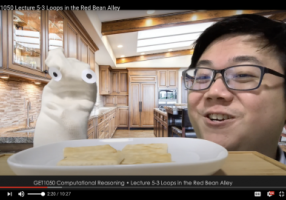Dr Susan Ang: Training Students to Grapple with Complications and Complexities
January 18, 2021
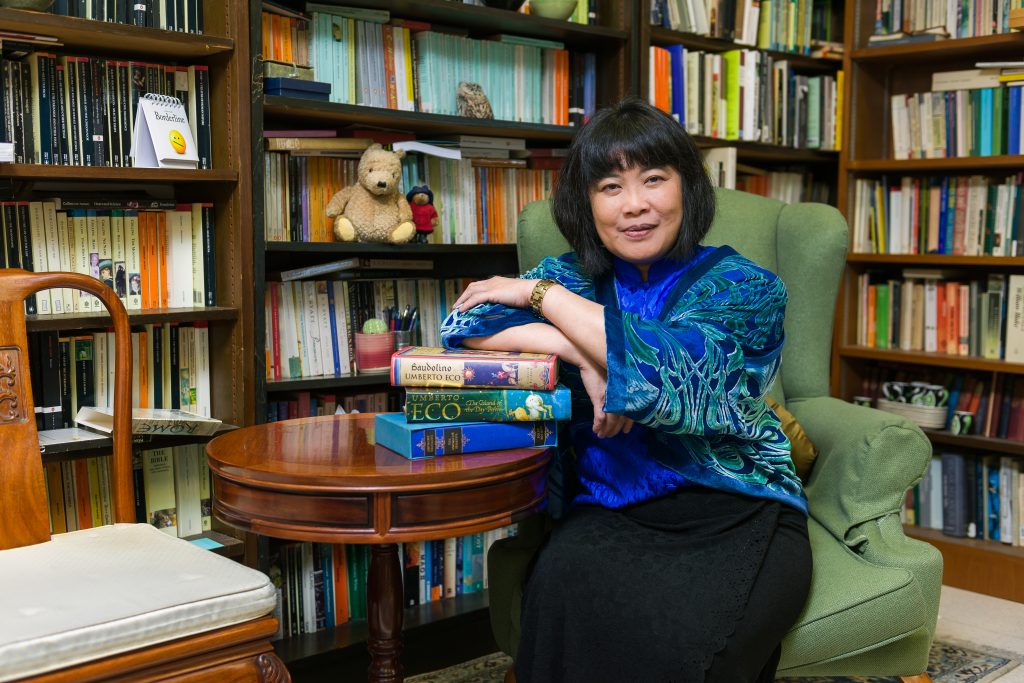
IN BRIEF | 3 min read
- Dr Susan Ang, Assistant Professor at NUS English Language and Literature, talks about the "randomness...involved" in her choice of career, and shares her approach to teaching and perspectives on learning.
“All teachers are the sum of all other teachers who have ever taught them. And when you’re being taught, you’re not just being taught by me, you’re being taught by all the teachers who ever taught me,” said Dr Susan Ang Wan-Ling, Assistant Professor in the Faculty of Arts and Social Sciences, Department of English Language and Literature.
With this reflection, Dr Ang shares the honour of her illustrious achievements as an outstanding educator with those who came before her. As the recipient of the 2014 Outstanding Educator Award, an eight-time awardee of the Faculty Teaching Excellence Award between the years 1997 and 2013, a yearly recipient of the Annual Teaching Excellence Award from 2003 to 2007 and again in 2016 and 2017, and a member of the NUS Annual Teaching Excellence Award Honour Roll (2007 and 2017), Dr Ang has clearly left a rich legacy in shaping the lives of NUS students.
Yet, her path towards choosing English Literature as an academic pursuit and, through that, a career as an educator, came about somewhat by chance. Dr Ang recalled, “A lot of randomness was involved.”
English Literature was a subject she was good at and interested in, partly thanks to a secondary school teacher who noticed her potential in the subject. Later, a letter from immensely impressed Cambridge examiners praising her exceptional A-Levels English Literature paper led the Public Service Commission to offer her a scholarship to complete her undergraduate degree in English Literature in Cambridge. Her journey as an educator would begin when she joined NUS upon returning home, in 1993.
Recollecting her experiences as an educator, Dr Ang said, “It’s evolved from when I came in as a fresh PhD, thinking my job was to teach content and scrambling to stay one step ahead of the students, and moving to the point where I realised it was more important to teach them how to think and analyse and write.” Years of interacting with students have convinced her that the essential purpose of teaching is to help them be aware of what they are doing and aiming for, and why it works or doesn’t.
Dr Ang’s emphasis on various ways of knowing finds a fitting extension in John Keats’s concept of negative capability, or the ability to dwell in a realm where there is no certain knowledge and be comfortable with it. She elaborated that this concept, as referenced in her conversations with students, prompts us to think further of ethical and viable ways to fill up the knowledge gap.
Narrating the story of Kent Weekes, the American Egyptologist who deliberately left some rooms in the Ramesseum untouched so that the unknown contents could be processed through future methodologies and forms of thinking, Dr Ang commented, “That’s incredibly generous, but also exemplary of a willingness to dwell in a state where knowledge hasn’t yet come in to fill the gap. How he leaves the rooms untouched is indicative of his views on how the gap may be best filled – by leaving that filling to others.”
Beyond the cerebral, it is the passion in her students that holds a special place in Dr Ang’s heart. “I’m moved by their interest,” she said, musing that one of her greatest joys is seeing students gradually growing in competency and interest in the discipline.
Highly valuing academic integrity as well, she recounts an unusual and warming story of a student, one of the best in her cohort, who had received a low grade on a test because she had omitted to observe one of the rubrics. When the opportunity to retake the test was offered to the whole class, this student opted not to do so. Puzzled, Dr Ang pushed her for an answer, upon which she explained that she was personally proud of her work despite being aware of its flaws, and would like the test score to share a part of her grade and count as part of what she had done that year. Such courage and conviction to stand by one’s work is inspiring to Dr Ang.
Training students to grapple with the complications and complexities in school and life is key to Dr Ang’s teaching philosophy. As students engage with difficult concepts, they also learn to not be afraid, to be intelligent in confronting the difficult, to be undamaged by failure, and to have the character to stick things out. These takeaways shape all aspects of the student’s life and are required to thrive in any field, even if they cannot be easily quantified.
Strength of character extends too, to the capacity to show goodness and kindness to others. Dr Ang reminisced, “I’ve come across students prepared to spend time teaching their weaker classmates, encouraging them without patronising them, and helping them work through arguments. I love that.”
Conveying her hopes and dreams for past and present students while they move through and beyond life in NUS, Dr Ang has one simple wish: that they live happy, enlarged and fulfilled lives, and get to realise their dreams.
“Like any parent, I just want the best for them,” she concluded. “That they should have the opportunities they crave, and be happy.”
This is the first installment of a series on outstanding educators at NUS (A Class of Their Own) by NUSnews and first appeared on 15 January 2021.


